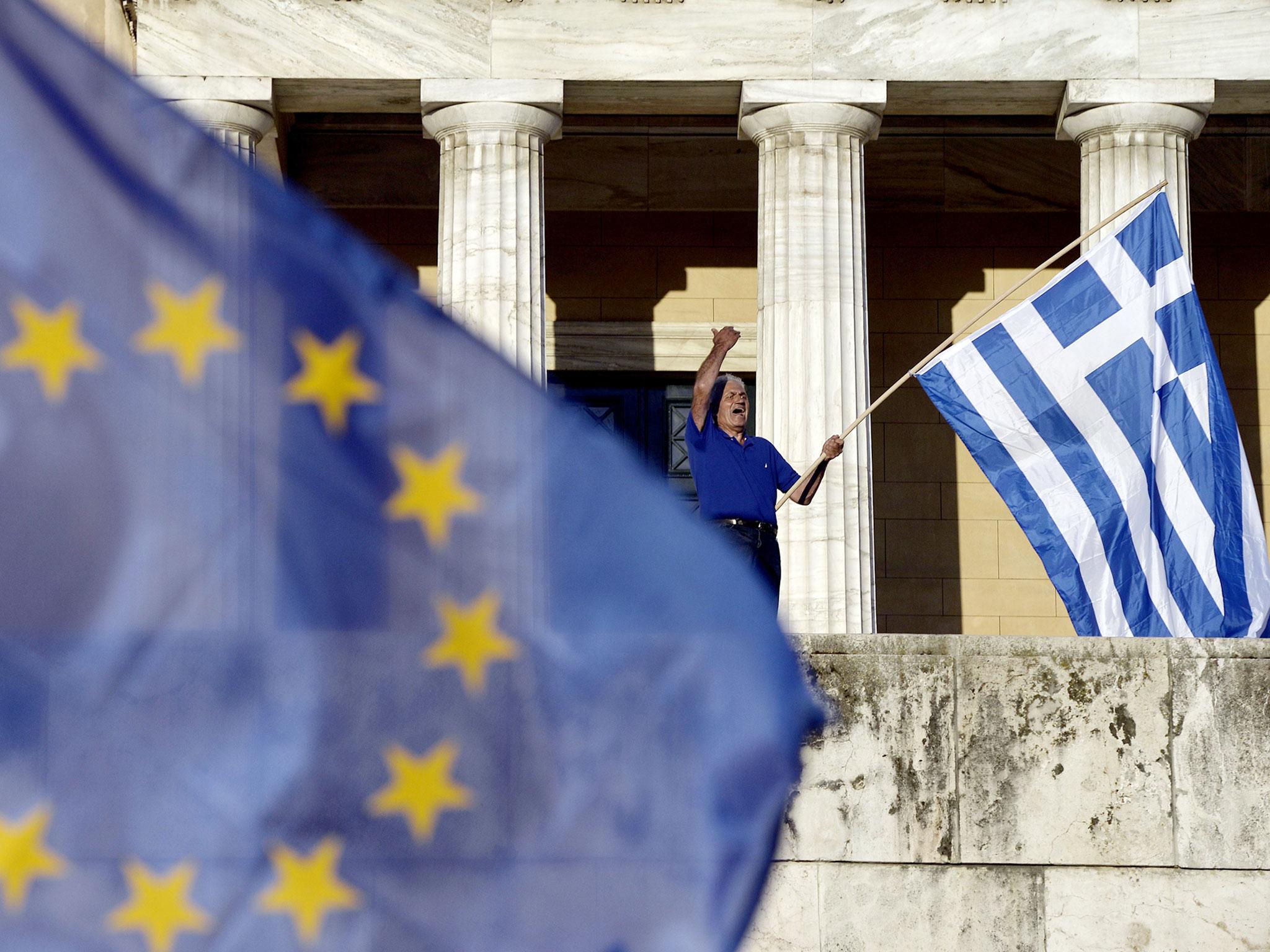Another day, another headline about Greece
Outlook

Your support helps us to tell the story
From reproductive rights to climate change to Big Tech, The Independent is on the ground when the story is developing. Whether it's investigating the financials of Elon Musk's pro-Trump PAC or producing our latest documentary, 'The A Word', which shines a light on the American women fighting for reproductive rights, we know how important it is to parse out the facts from the messaging.
At such a critical moment in US history, we need reporters on the ground. Your donation allows us to keep sending journalists to speak to both sides of the story.
The Independent is trusted by Americans across the entire political spectrum. And unlike many other quality news outlets, we choose not to lock Americans out of our reporting and analysis with paywalls. We believe quality journalism should be available to everyone, paid for by those who can afford it.
Your support makes all the difference.Two key points commentators unerringly miss about the Greek crisis talks: one, a compromise was always going to be struck. Two, the process was always going to be noisy.
On both sides, the intransigent political rhetoric – crucial to convince electorates on all sides that their interests are being fought for – masked an overwhelming will to get a deal done.
It’s a good job, too. The best outcome for a stable Europe is for Greece to remain in the euro, with its sovereign creditors continuing to force the pace of the country’s economic reforms in return for relaxed repayment terms.
This will take many years, include much pain for the Greeks, and, I’m afraid, many more Greece-on-the-brink headlines.
This triple-A analysis should be required reading ahead of the referendum
Credit rating agencies lost a lot of respect over the financial crisis. Little wonder: they proved themselves scandalously beholden to the banks when rating their sub-prime mortgage garbage and too often rated toxic waste as triple-A gold dust.
Too little has changed in the way the system of credit ratings work: an oligopolistic trio of agencies still rule the roost, getting paid by the very banks they are supposed to be monitoring.
But when it comes to rating sovereign debt, their analysis is less tarnished. So, when Standard & Poor’s comes up with a study of the impact of Britain leaving the EU, it merits a listen.
S&P is the only major agency that still rates Britain at the coveted triple-A. But its primary credit analyst, Frank Gill, seems concerned he might be making a mistake.
S&P already warned it might downgrade the UK last month. On Tuesday, it published a solidly reasoned explanation of why.
Mr Gill’s key concern is the impact an “out” vote could have on our all-important banks. Love them or loathe them, the City’s banks provide 1.4 million jobs and 12 per cent of income tax and national insurance receipts. They are the main driver of foreign direct investment into the UK, nearly half of which comes to them from the EU.
Quitting the union would jeopardise this flourishing industry, encouraging global banks to “tilt away” from London, Mr Gill warns. This is particularly the case for non-EU banks which use London as a springboard into the single market.
Furthermore, S&P reasons, British banks would suffer because they would lose the “passporting rights” they have allowing them to bank and trade in the EU and European Economic Area.
True, we could sign individual bilateral trade agreements with all the states in Europe. Or we could join the European Free Trade Association, along with those economic titans Iceland, Liechtenstein, Norway and Switzerland. This could allow us to renegotiate those passporting rights back again.
But what would be the point in that? Both options mean signing up to very similar clauses to those we already commit to with the EU, yet without a seat at the negotiating table of key institutions. Furthermore, S&P says, Britain would still end up having to contribute to the EU budget, albeit less than we do now.
The Government doesn’t like to talk about it, but Britain currently has the world’s second highest current account deficit. The largest is the US, but being the world’s strongest economy, that isn’t really such a problem – its deficit is underpinned by having the strongest economy and currency in the world.
For little old us, it’s a different matter. S&P says it’s most likely that if we pull out of Europe, the foreign earnings of our all-important banks would only get worse, and with it, the current account deficit. The pound could collapse and lose its reserve status, triggering a sell-off by central banks.
These are all “coulds”, of course. S&P counters its negative arguments by pointing out that, post-Brexit, London would still have the infrastructure of clearing houses and exchanges, legal and accounting expertise and skilled international workforce a thriving financial centre needs. But for how long? These experts tend to be a footloose bunch who go where the money is. Once international banks shifted their focus elsewhere, surely they’d follow, sharpish.
Even if S&P is right and I’m wrong on that one issue, it seems ridiculous to risk the pre-eminence of one of our few net exporters – the City of London – for the sake of reactionary Eurosceptic ideology.
S&P’s analysis scores a triple A and makes for required reading ahead of the referendum.
Join our commenting forum
Join thought-provoking conversations, follow other Independent readers and see their replies
Comments